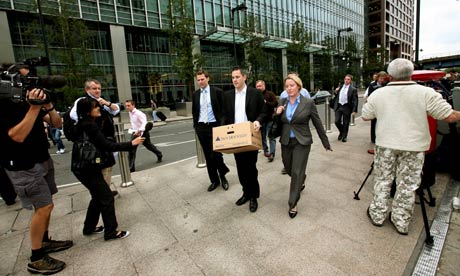We should be open to the idea of self-managed holidays, but it won’t work in a climate of anxiety

Half Brazilian, half Austrian, Ricardo Semler runs one of the strangest companies in the world – though perhaps “runs” is the wrong verb. He recently held a party to celebrate 10 years of not making any decisions.
Semco is a Brazilian engineering conglomerate, and over the past two decades Semler has led a dramatic series of experiments to find ways of accessing the enthusiasm of his staff.
They now manage the company themselves. They work in teams without job titles. Like Richard Branson’s much-heralded experiment announced earlier this week, they choose their own holidays and their own hours. However, although Semco is on the syllabus of most of the world’s business schools, few business graduates have copied it. Quite the reverse: iron control by IT system seems to be the trend.
But the salaries, holidays and hours Semco’s employees choose are transparent, and therein lies the power. It isn’t so much the power of self-control but the power of peer control. The most imaginative companies have realised the same thing in recent years: that group pressure may be a good deal more effective at controlling their workforce than an IT system, powered by a top-heavy, heavy-handed human resources department.
It is the same revelation that hit Muhammed Yunus, the founder of Grameen Bank. He realised that peer pressure by borrowers on each other was far more effective at avoiding bad debts than the traditional command-and-not-quite-control.
Branson is only the most recent business leader to grasp this – he got the idea from Netflix – and the power of small teams answerable to each other has done wonders for productivity in companies such as General Electric and WL Gore.
But before we take Branson’s approach at face value, there are a few things we need to think about. Peer control can be pretty ferocious. It can lead people to extremes. Even some of the most disillusioned first world war soldiers, such as Siegfried Sassoon, went back to the trenches willingly – strove to do so, in fact – so as not to let their colleagues down.
I’m self-employed. I have complete control of my holiday entitlement and I still don’t take it. It may be that self-managing teams can also be kinder and more understanding, once you have earned their trust. Given the choice between working in an Amazon warehouse, timed when I go to the loo, and in a self-managed team choosing my own holiday schedule, I know which one I would prefer. But that isn’t to say it would always be comfortable or that there wouldn’t be places where people suffered the consequences of coercive, bullying, group dynamics.
There are two other peculiarities about Branson’s thoughts on the subject, which are taken from his new book The Virgin Way. One is that it applies only to his head office staff in the US and UK – just 170 people. Virgin doesn’t do much except invest and rent out its name to other companies. Behind this apparent empire is a vast database and linked call centres, but not much else. Branson’s company owns just half of Virgin Atlantic and Virgin Trains, and only around a tenth of Virgin Media, a subsidiary of a different company entirely.
He says he will be encouraging them all to use the same idea if it is successful. But the real test is whether similar arrangements are offered to frontline staff bearing his logo, which he barely has the power to do.
The other peculiarity is that Branson seems to be trying to have it both ways. He reveals himself to be not quite the radical, bearded, liberal-minded guy he might occasionally look like.
He rather gives the game away on the company blog when he “assumes” that his staff will only take holidays “when they feel 100% comfortable that they and their team are up to date on every project and that their absence will not in any way damage the business – or, for that matter, their careers!” This convoluted sentence faces all ways at once. It seems to be saying you can manage your own holiday entitlement – if you dare.
The self-managed holiday idea is a radical experiment and needs testing out. But in Branson’s formulation, it is doomed from the start: if you had to be 100% certain that you were up to date on everything, would ever take a long weekend, let alone head off on holiday?
It is a sentence that seems to emerge from a nervous manager in a bit of a muddle. He is opening the doors of the cage but not quite daring to put down the whip.


